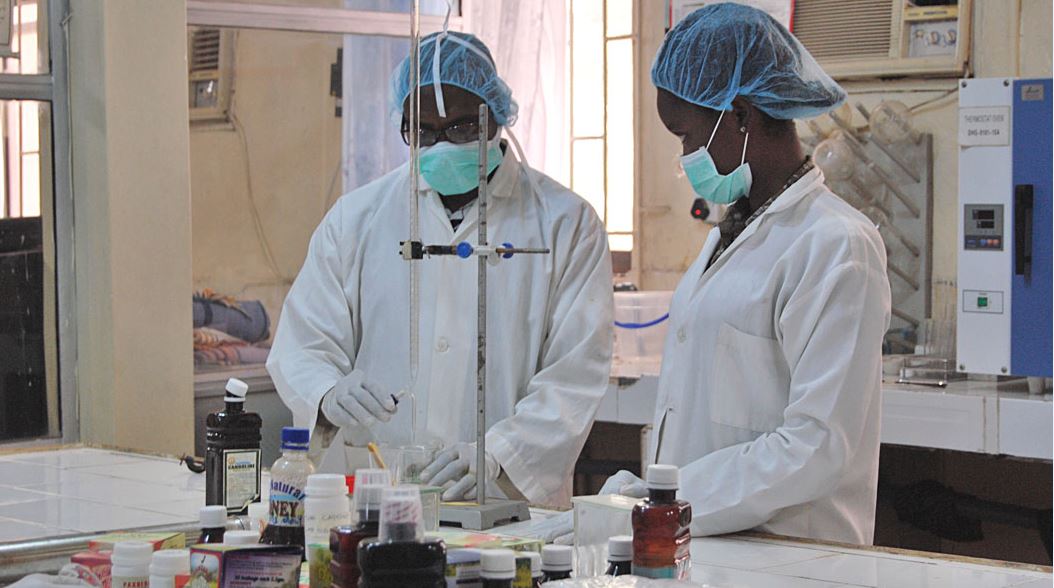According to The Merriam- (Webster online Dictionary). A studious inquiry or examination, especially; investigation or experimentation aimed at the discovery and interpretation of facts, revision of accepted theories or law in the light of new facts or practical application of such new or revised theories or law. The purpose of research is to inform action. Research must always be of high quality in order to produce knowledge that is applicable outside of the research setting. Furthermore, the results of your study may have implications for policy and future project implementation.
Lack of quality research constitutes an impediment to the growth and development in Nigeria. Despite the enormous human resources Nigeria has, only a fraction of its research outputs is palpable. This is despite the challenges facing the country, many of which are manageable via robust and efficient research. Notably, among these barriers are lack of funding, equipment and mentoring.
One problem that often plagues progress in global health is the slow translation of research into practice. Often, a disconnect exists between those who conduct research and those who are positioned to implement the research findings. The underlying problem is that “the production of evidence is organized institutionally with highly centralized mechanisms, whereas the application of that science is highly decentralized. This social distance prevails because scientists are more oriented to the international audiences of other scientists for which they publish than to the needs of practitioners, policy makers, or the local public.
Benefits Of Research
- More fact corroboration: When you find a fact in one reference source that is supported in another reference source, you can be assured that the fact you are using in your business paper or assignment is accurate.
- More viewpoints: The more resources you use, the more viewpoints you will consider during your topic exploration. This allows you to consider more ideas than the original one you may have been assigned.
- More facts: When you use more research skills and sources, you will be able to gain more facts for your final project.
- Larger frame of understanding: Because different research sources offer different kinds of information, you can find different ways to understand your topic, depending on the manner in which you need to present your findings.
- Gain knowledge quickly: If you need to prepare for a presentation or a test, you want to be able to find the facts about your topic quickly. With basic research skills, you will find what you need promptly.
Importance of Research
Research encourages curiosity
Having curiosity and a love for learning takes you far in life. Research opens you up to different opinions and new ideas. It also builds discerning and analytical skills. The research process rewards curiosity. When you’re committed to learning, you’re always in a place of growth. Curiosity is also good for your health. Studies shows that curiosity is associated with higher levels of positivity, better satisfaction with life, and lower anxiety.
Research expands your knowledge base
The most obvious reason to do research is that you’ll learn more. There’s always more to learn about a topic, even if you are already well-versed in it. If you aren’t, research allows you to build on any personal experience you have with the subject. The process of research opens up new opportunities for learning and growth.
Research helps you know what you’re up against
In business, you’ll have competition. Researching your competitors and what they’re up to helps you formulate your plans and strategies. You can figure out what sets you apart. In other types of research, like medicine, your research might identify diseases, classify symptoms, and come up with ways to tackle them. Even if your “enemy” isn’t an actual person or competitor, there’s always some kind of antagonist force or problem that research can help you deal with.
Research helps with problem-solving
Whether it’s a personal or professional problem, it helps to look outside yourself for help. Depending on what the issue is, your research can focus on what others have done before. You might just need more information, so you can make an informed plan of attack and an informed decision. When you know you’ve collected good information, you’ll feel much more confident in your solution.
Research builds your credibility
People will take what you have to say more seriously when they can tell you’re informed. Doing research gives you a solid foundation on which you can build your ideas and opinions. You can speak with confidence about what you know is accurate. When you’ve done the research, it’s much harder for someone to poke holes in what you’re saying. Your research should be focused on the best sources. If your “research” consists of opinions from non-experts, you won’t be very credible. When your research is good, though, people are more likely to pay attention.
Research helps you narrow your scope
When you’re circling a topic for the first time, you might not be exactly sure where to start. Most of the time, the amount of work ahead of you is overwhelming. Whether you’re writing a paper or formulating a business plan, it’s important to narrow the scope at some point. Research helps you identify the most unique and/or important themes. You can choose the themes that fit best with the project and its goals.
Research teaches you better discernment
Doing a lot of research helps you sift through low-quality and high-quality information. The more research you do on a topic, the better you’ll get at discerning what’s accurate and what’s not. You’ll also get better at discerning the gray areas where information may be technically correct but used to draw questionable conclusions.
Research introduces you to new ideas
You may already have opinions and ideas about a topic when you start researching. The more you research, the more viewpoints you’ll come across. This encourages you to entertain new ideas and perhaps take a closer look at yours. You might change your mind about something or, at least, figure out how to position your ideas as the best ones.
Research helps you reach people
Research is used to help raise awareness of issues like climate change, racial discrimination, gender inequality, and more. Without hard facts, it’s very difficult to prove that climate change is getting worse or that gender inequality isn’t progressing as quickly as it should. The public needs to know what the facts are, so they have a clear idea of what “getting worse” or “not progressing” actually means. Research also entails going beyond the raw data and sharing real-life stories that have a more personal impact on people.
Research gives you the latest information
Research encourages you to find the most recent information available. In certain fields, especially scientific ones, there’s always new information and discoveries being made. Staying updated prevents you from falling behind and giving info that’s inaccurate or doesn’t paint the whole picture. With the latest info, you’ll be better equipped to talk about a subject and build on ideas.
How to Conduct a Good Research
Conducting research is an important component for the development of scientific thinking. Research adds to the body of knowledge and propels our medical specialty forward. The process also allows the clinician to better understand the nuances of published research and more readily discern the strengths and weaknesses of journal articles.
A busy practitioner may foresee considerable barriers to conducting research, the most significant being the lack of knowledge on how to begin. Here is a suggested blueprint:
Develop a research question. It may be something you have wondered about during one of your patient encounters. Even if it’s a simple question, don’t assume the research has been done.
Conduct a thorough search of the published medical literature. A good resource is pubmed.org ( http://www.ncbi.nlm.nih.gov/pubmed/) which is a searchable engine of key terms for published medical studies. Even if there already has been research into your topic, there is s value in conducting additional research.
Carefully plan the methodology to test your research question. This is the most important component of conducting research. Without sound methodology, the results may not be accurate and the conclusions unsubstantiated.
After data are collected, the results must be statistically tested. This is a good time to seek help from a biostatistician.
Conclusions are drawn from the results and all of the components above are then synthesized and submitted to a peer-reviewed journal. Dissemination of the research findings through the medical literature is critical. In this way, the results will not only influence how you approach your patients, but how your colleagues approach theirs as well.
The practitioner in a nonacademic setting faces substantial challenges to conducting research, including time, money, and personnel. However, these barriers can be overcome with enthusiasm and a fundamental understanding of the research process. SEE: 10 Importance of a Doctor In a Society






